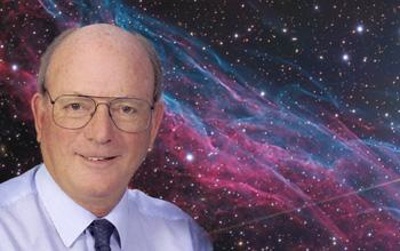Michael J. Drake: A remembranceby Andre Bormanis
|
| After a brief and very cordial conversation, I fully expected to be passed along to another colleague, but Mike actually had a job for me, if I was interested. |
There were no undergraduate course offerings in planetary science back in those days, but somehow I got it into my head that I might be able to get a job as a student assistant at the U of A’s Lunar and Planetary Laboratory. I hoped to learn some planetary science from the people who were rewriting the textbooks, and figured that even cleaning test tubes would be better than the off-campus jobs I’d been working (jobs that included mopping floors at a local restaurant and painting birdbaths in the parching Tucson heat).
Not knowing how else to start, I knocked on the office door of one of the LPL scientists and asked him if he might have some work for an inexperienced 19-year-old student. He politely said no, but suggested I ask Professor so-and-so if she might have something. A few days later I knocked on her door, and she said essentially the same thing. This process continued for several months.
I finally found myself in the office of Mike Drake. At the time he was a young Associate Professor, I believe, a soft-spoken geochemist from England. After a brief and very cordial conversation, I fully expected to be passed along to another colleague, but Mike actually had a job for me, if I was interested. If he had asked me to wash his car I would have happily said yes. Fortunately he had something far more engaging.
For three years (the rest of my undergraduate degree) I worked part-time in Mike’s lab, creating and analyzing artificial meteorite magmas. Mike’s research at the time focused on developing a better understanding of the thermodynamics of asteroid formation in the early evolution of the solar system. By examining the way rare-Earth elements partitioned between the liquid and solid phases of our laboratory magmas, and then comparing them to actual meteorite samples, we could infer something about what was going on in the earliest epoch of the solar system, when the larger asteroids were taking shape (back then, the only asteroid samples we had were meteorites).
| His passing is especially tragic in light of his role as principal investigator in OSIRIS-Rex, the ambitious asteroid sample-return mission NASA recently approved. |
Despite my youth and inexperience, Mike always treated me as a respected colleague. He trusted me with the keys to the vault that contained our rare-Earth metals (a small roll of platinum wire was worth $5,000) and patiently taught me how to use a variety of sophisticated instruments, including the lab’s scanning electron microprobe quantometer. He even invited to me to play racquetball (he beat the pants off me, every time) and on occasion to share “a pint or two” at the end of the day. Through Mike, I also got to know and work with science majors from other fields, and a number of other outstanding planetary scientists, including Laurel Wilkening and Bill Boynton.
I was truly shocked when I heard about Mike’s death. He was an active research scientist with no plans to slow down. It’s been a few years since the last time I visited Mike at LPL, and if he was having health problems then, he never mentioned it. He was not the kind of person to complain about the cards he was dealt.
His passing is especially tragic in light of his role as principal investigator in OSIRIS-Rex, the ambitious asteroid sample-return mission NASA recently approved. These are obviously challenging times for the space program. It takes smart, ambitious people with both technical and personal skills to develop a mission like OSIRIS-Rex and get it approved. Mike had those skills in spades. As his LPL colleague Peter Smith said last week, “It’s Mike’s mission.” Without his vision and leadership, it might never have made the cut.
His loss will be deeply felt throughout the planetary science community, and I feel privileged to have known and worked for him for a short time. I hope that when OSIRIS-Rex reaches its target, the mission team raises a glass to Mike Drake. And I would like to think that some part of him will be out there with it, reveling in the new insights it will certainly reveal about our glorious universe.
